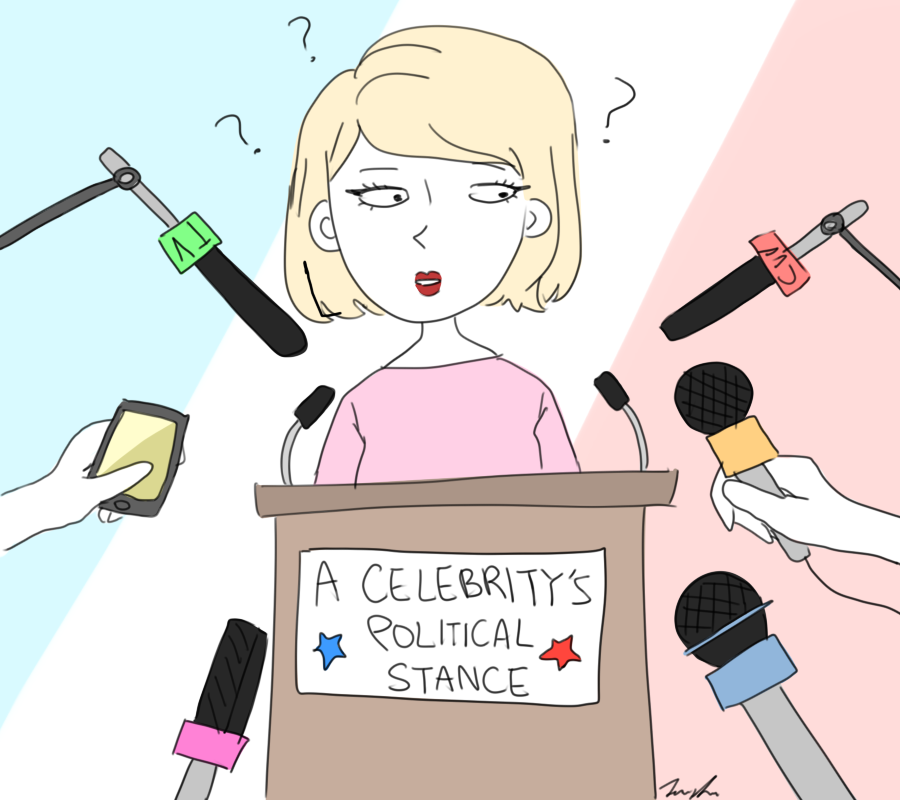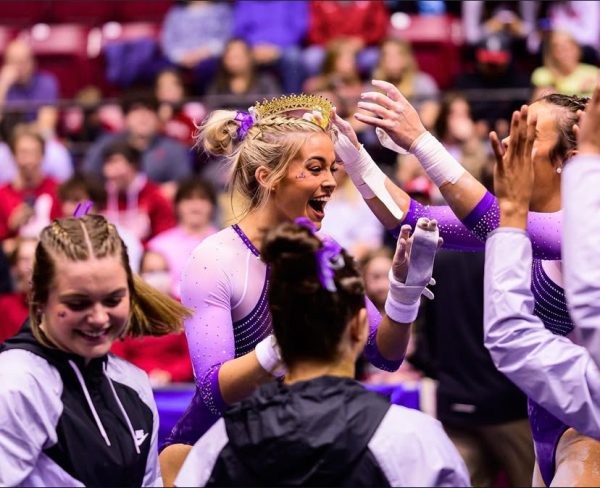Artists don’t owe you their political opinions
January 22, 2018
On Election Day, Taylor Swift’s Instagram post of herself voting—complete with a caption encouraging fans to vote—seemed completely normal to me. But almost immediately, speculation arose: was the grey sweater she wore a secret hint that she voted for Hillary? Does her lack of political endorsement mean she voted for Trump?
Swift has previously come under fire for not attending the Women’s March and for refusing to speak out against white supremacist groups— neo-Nazi Andrew Aglin describes her as a “pure Aryan goddess”— since the launch of her recent album Reputation. The Daily Stormer, a white supremacist blog, penned that Taylor is “secretly a Nazi and is simply waiting for the time when Donald Trump makes it safe for her to come out.”
Initial requests for Swift to defend her self-marketing appeals towards empowerment and inclusion spiraled into something more: asking who she voted for. Did Taylor Swift vote for Trump? The Media Really Wants to Know, read one headline from MediaFiledc.com, among countless others.;: Taylor Swift’s political silence sparks belief she voted for Trump, ran the New York Daily.
Scrutiny over her stance on feminism and her supposed promotion of blatant racism is arguably valid and necessary in Swift’s case. Feminism isn’t partisan, and neither is racism. Speculation regarding Swift’s political affiliation, however, isn’t productive.
Entertainers deserve the same amount of privacy regarding their political beliefs that any private citizen has. Asking Swift, or any other entertainer, to tell their fans who they voted for is like asking someone to update their Facebook status for million of people they don’t know. All citizens have a right to privacy at the ballot box, and entertainers are entitled to privacy on this matter despite their fame.
No one owes you their political opinion, and while political discussion ought to be fostered, it shouldn’t be forced. Public silence and refusal to endorse a candidate doesn’t mean political inactivity; it’s simply just a choice for privacy. Artists’ decisions to draw the line between political and cultural relevance should be respected. Their platforms aren’t just large campaign advertisements, and their fans are defined by much more than just party lines.
When artists express their political thoughts, they risk polarizing fans and end up distracting from the art. Fans may stop listening to an artist’s music or stop supporting them because of a difference in political belief. Without the political pressure for asking artists to share who they voted for, fans would appreciate their music without getting caught up in politics.
While some argue that because artists have a wide network of support and fans, and they should leverage their influence for the better, many artists don’t feel qualified or comfortable to use their platform for political expression. In 2012, Swift told Time magazine she doesn’t talk about politics because she doesn’t feel experienced enough influencing other people in how they vote. This isn’t to say artists should be discouraged from speaking out because they’re unqualified and incompetent, but the choice should be theirs make. The public, fans, and the media should recognize this right and resist pressuring entertainers to come forward about their political affiliations.
Entertainers don’t owe the public a justification of their political beliefs and preferred candidates: politics is personal, and no one should face pressures to act otherwise.







